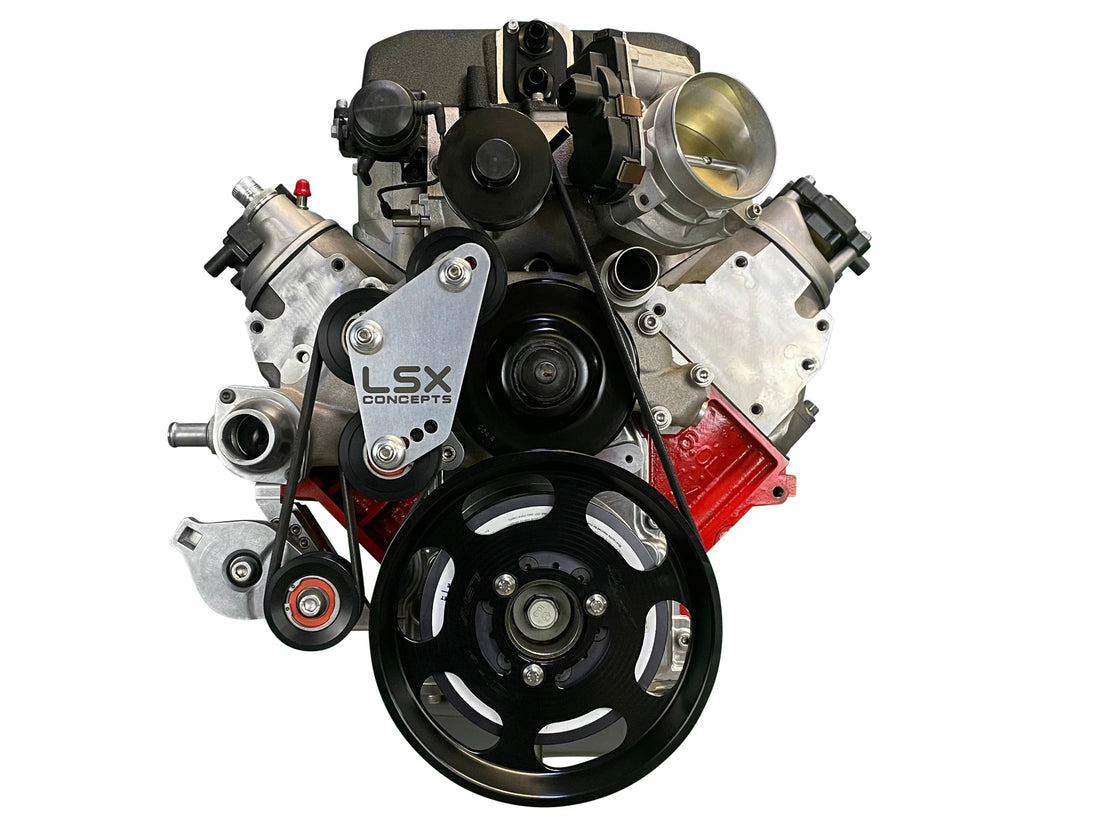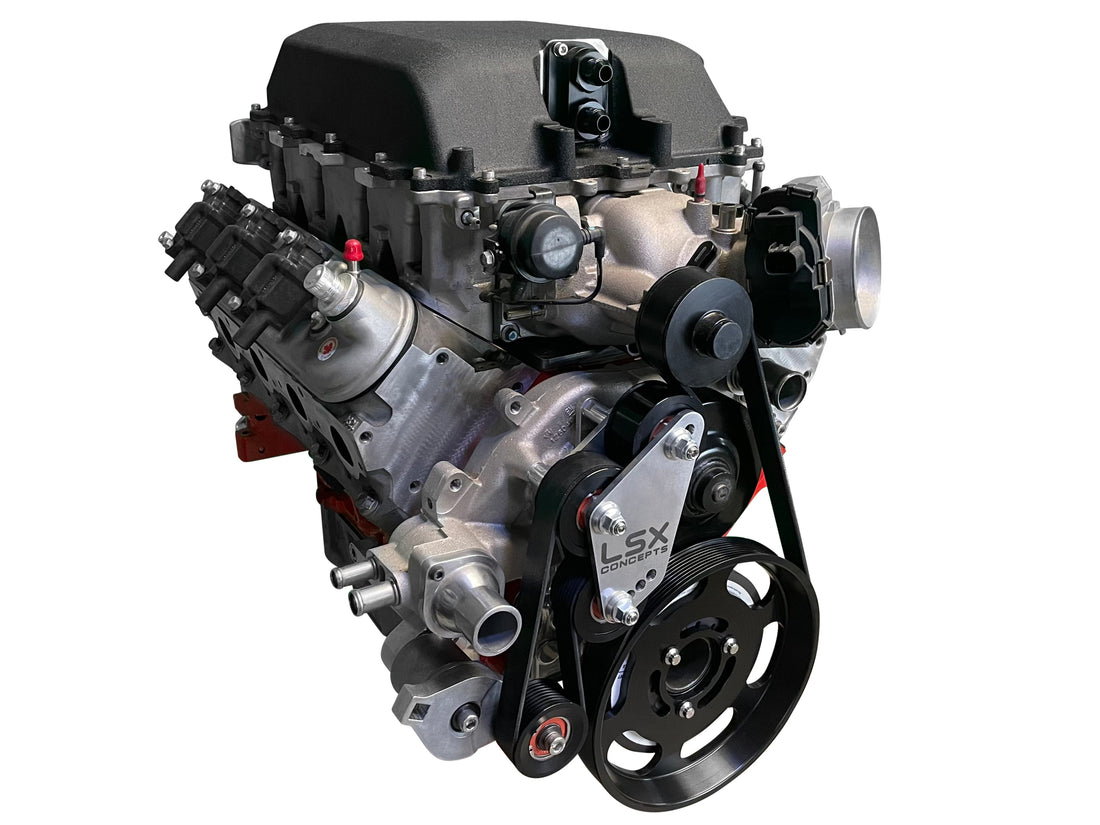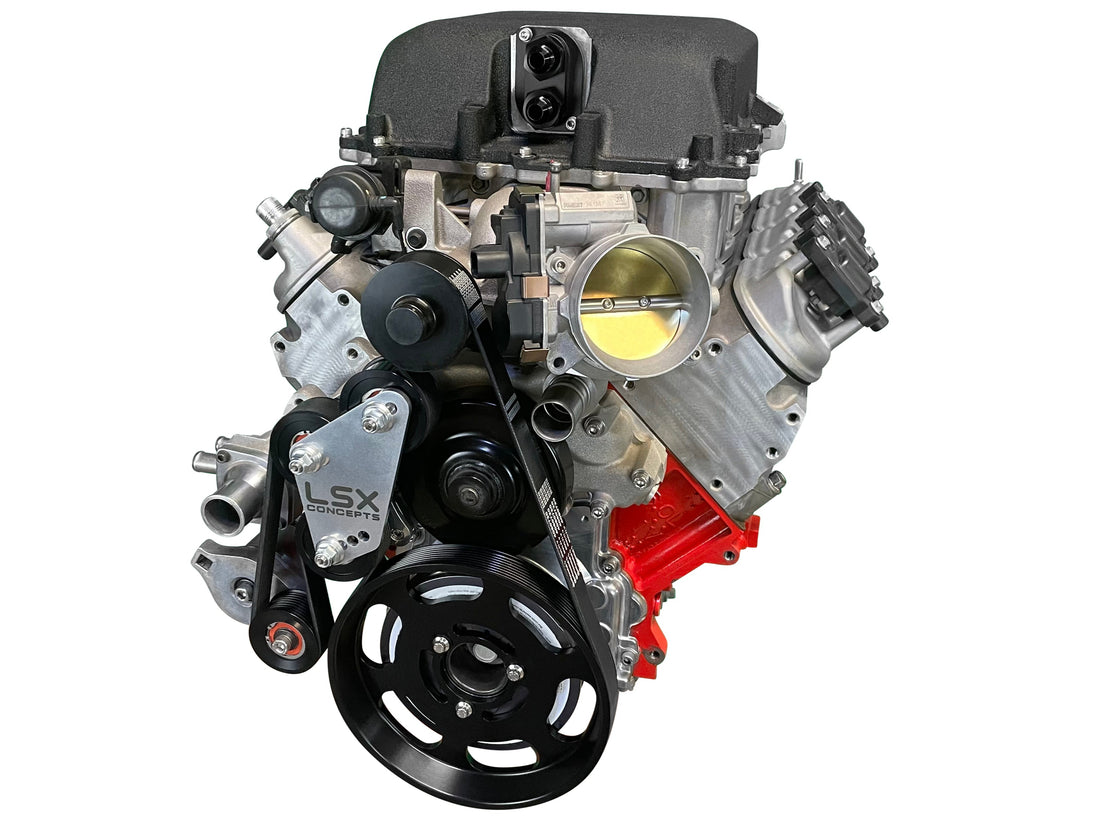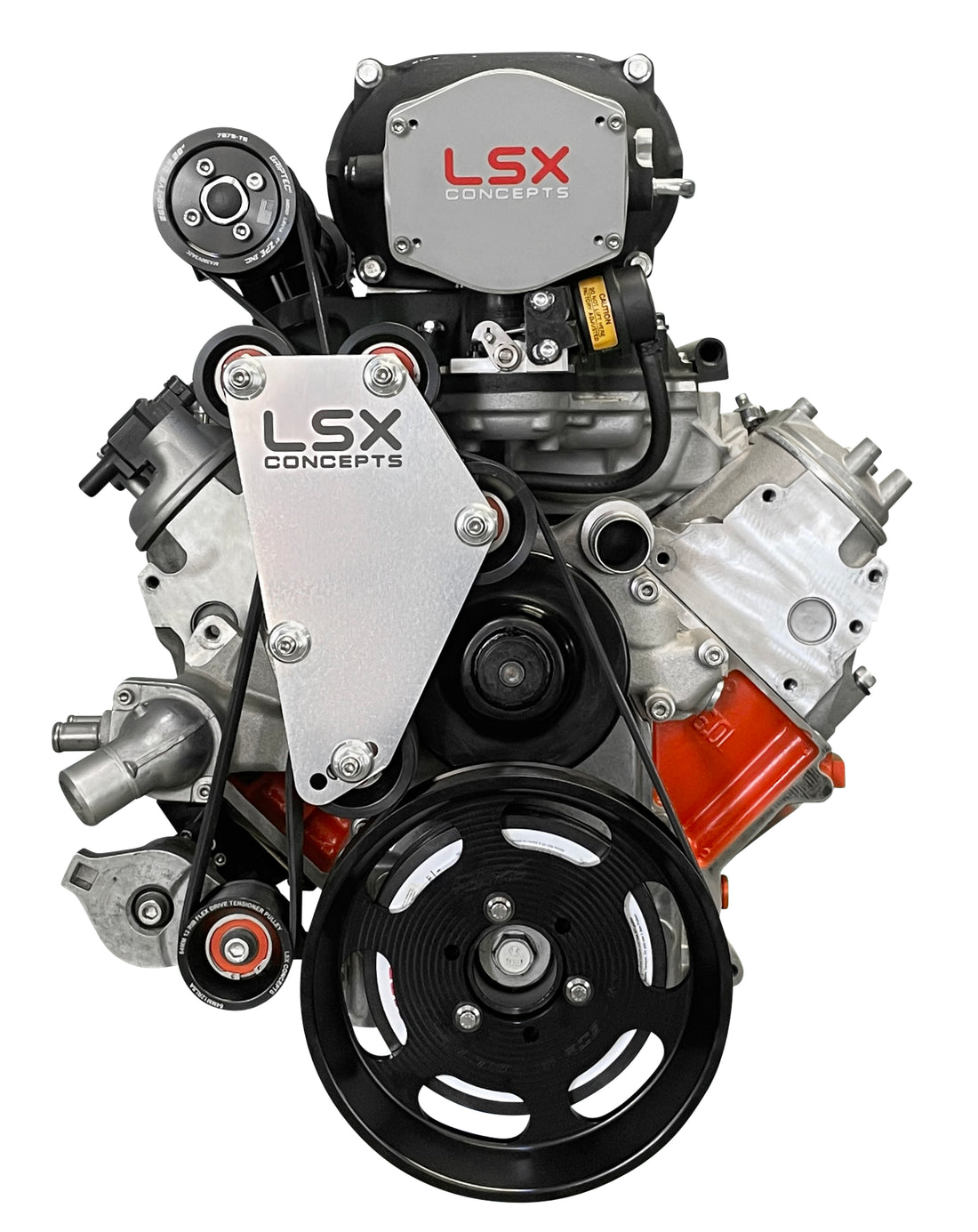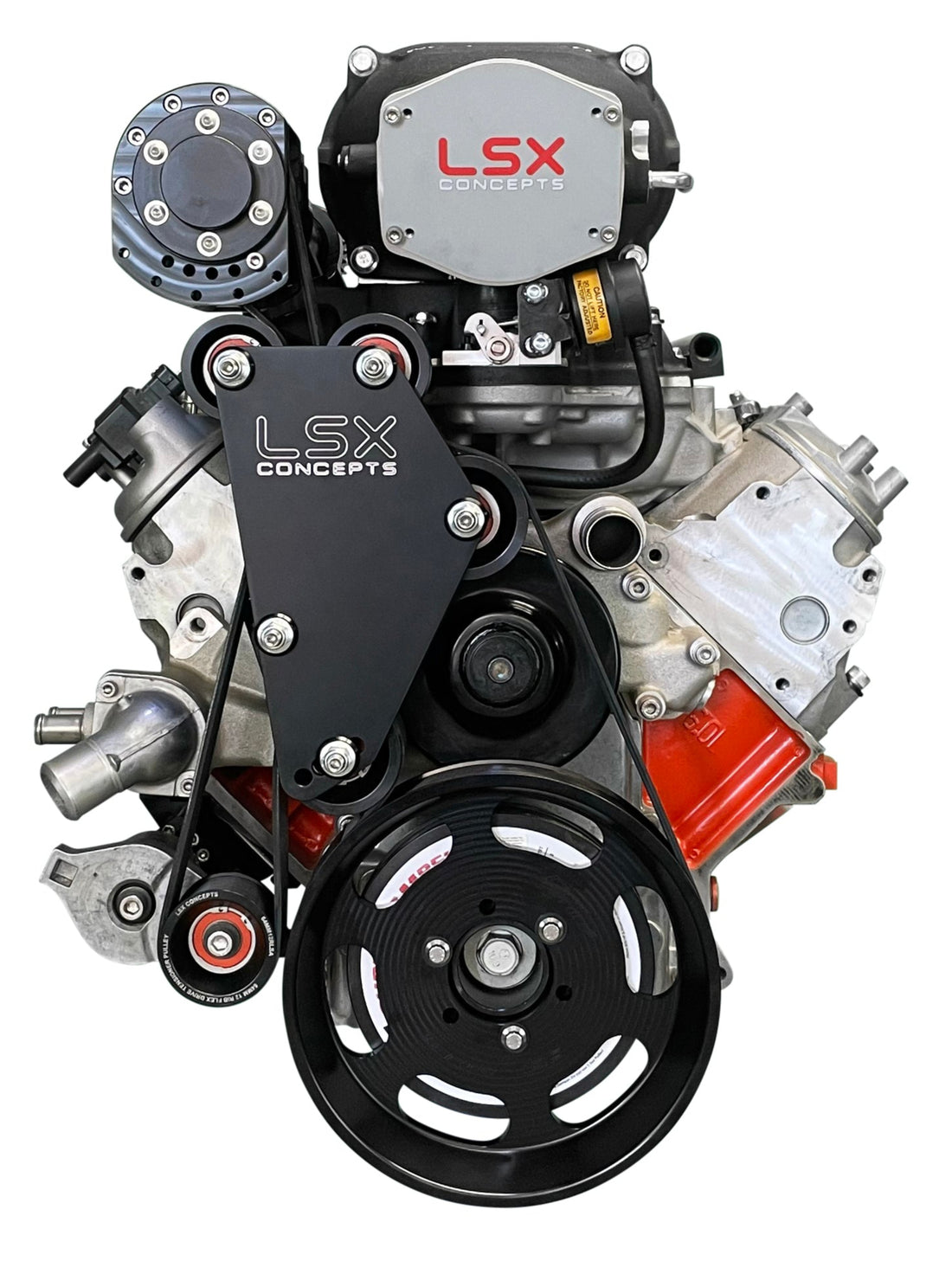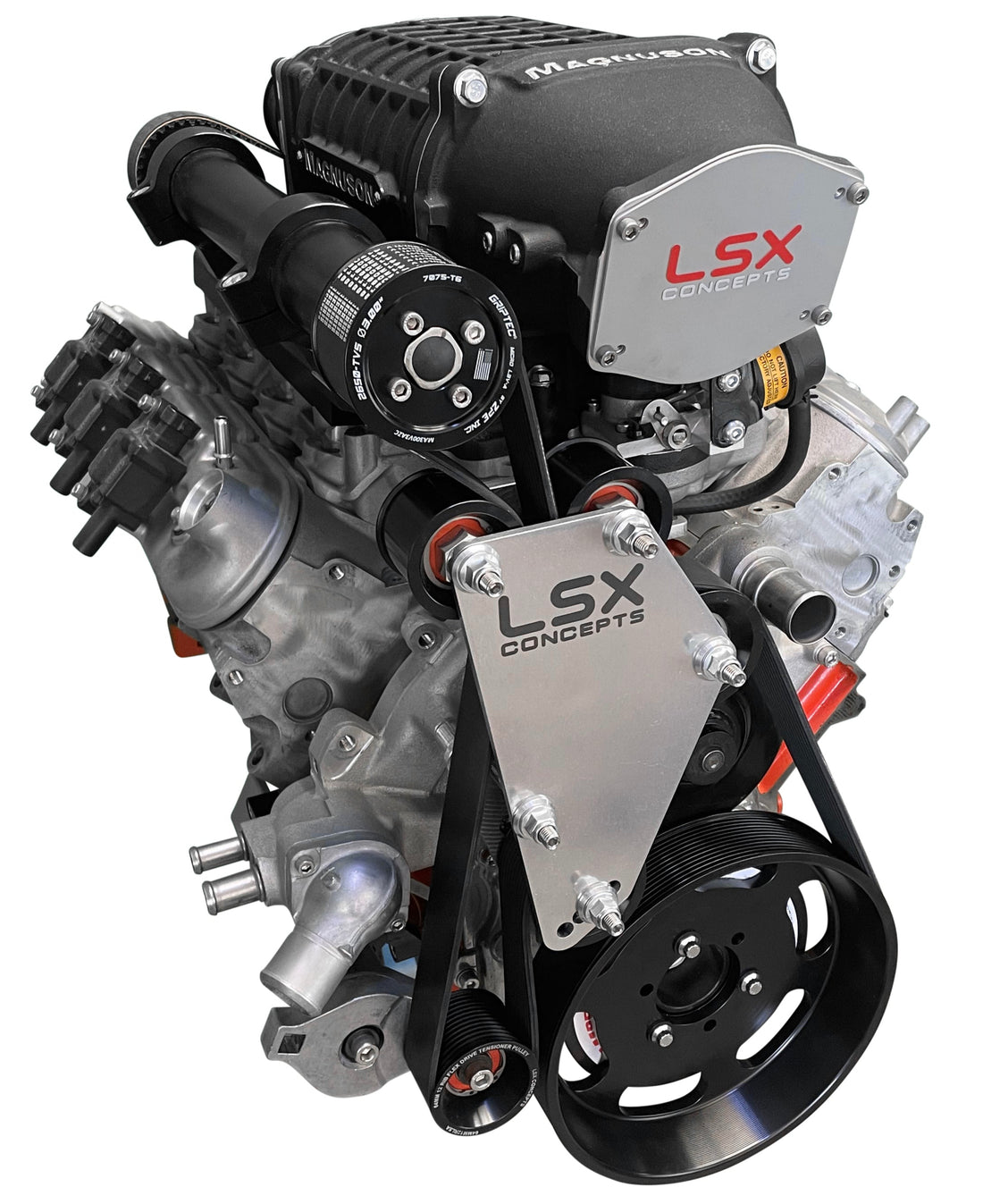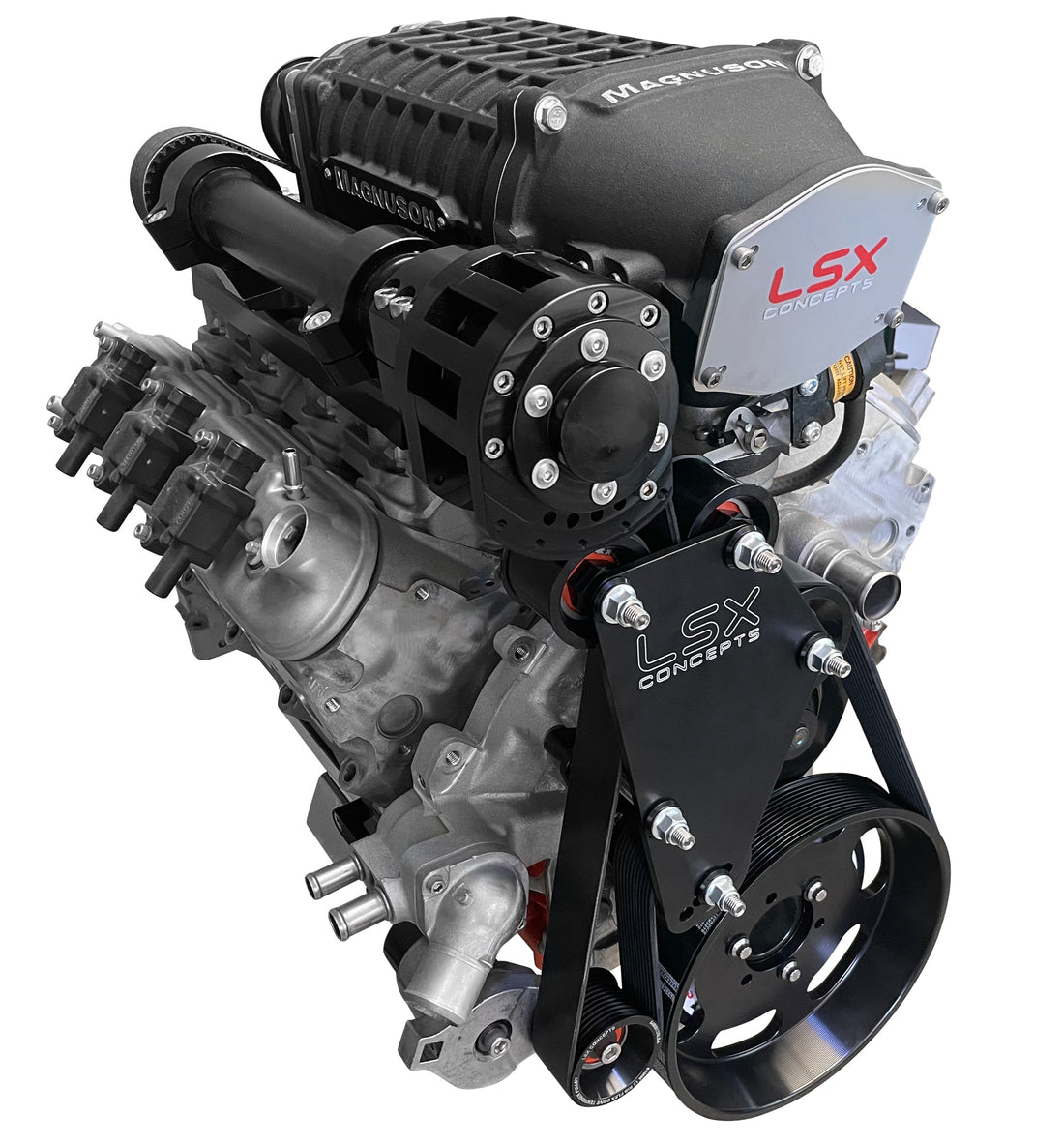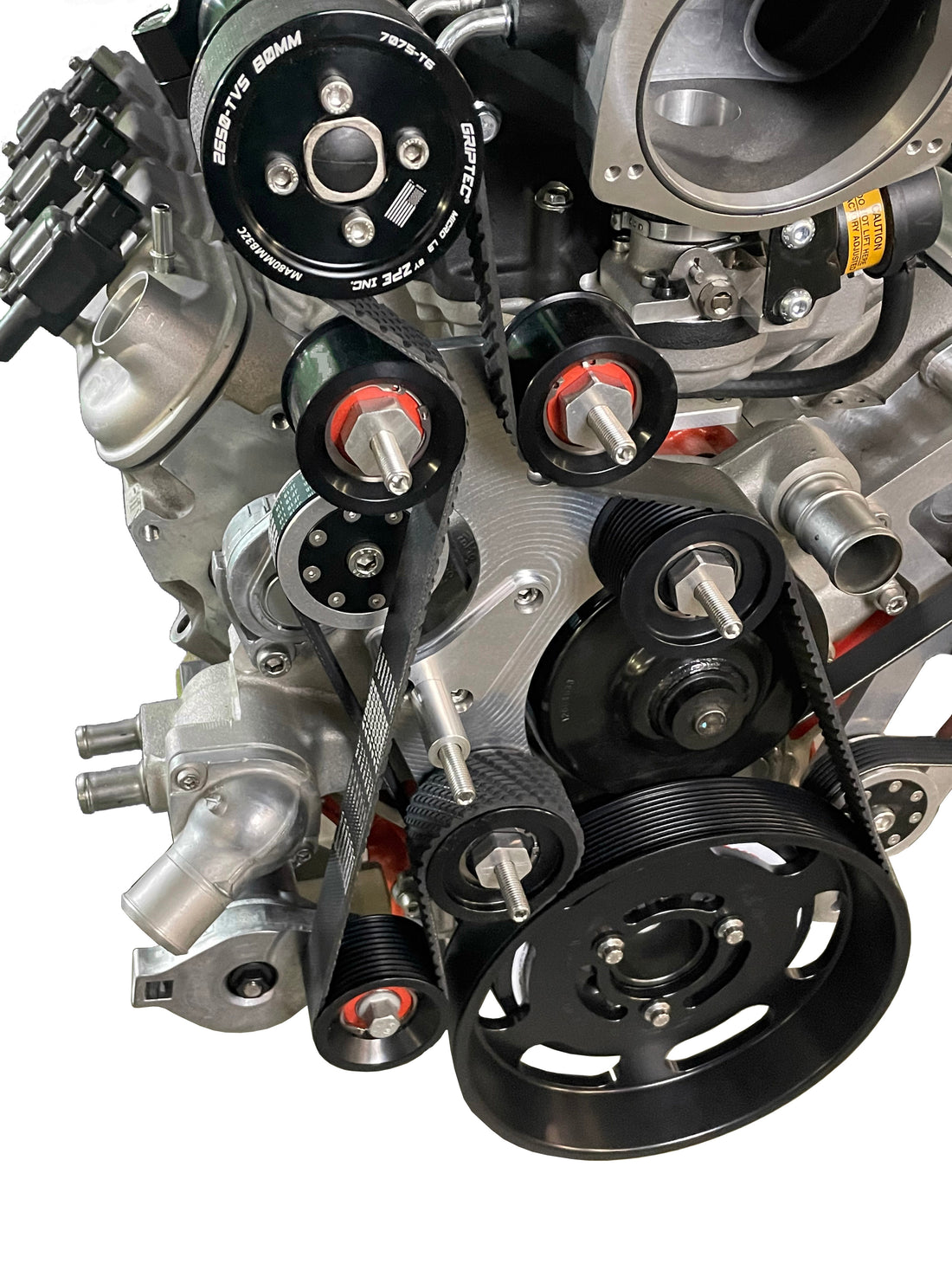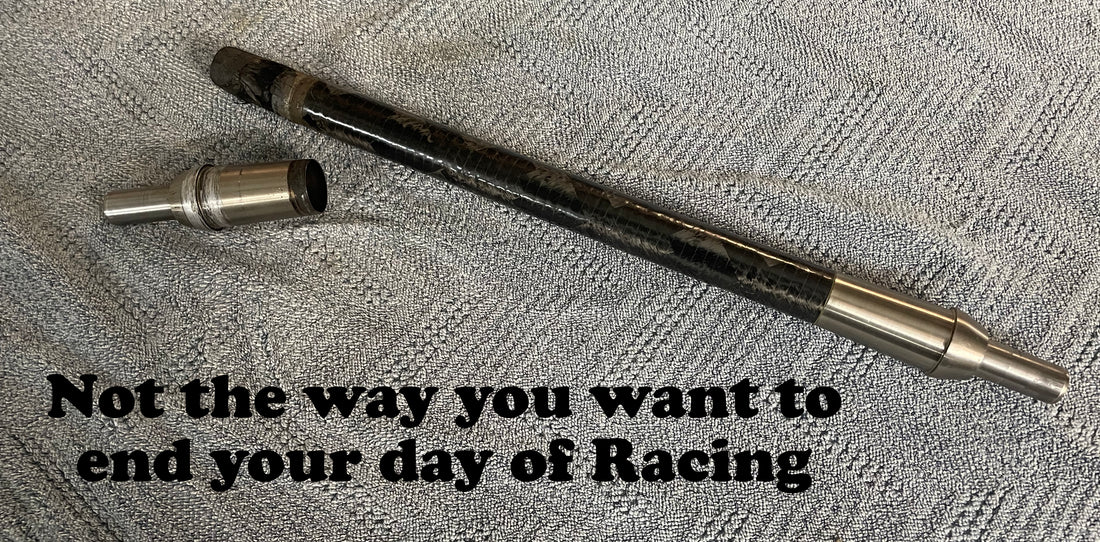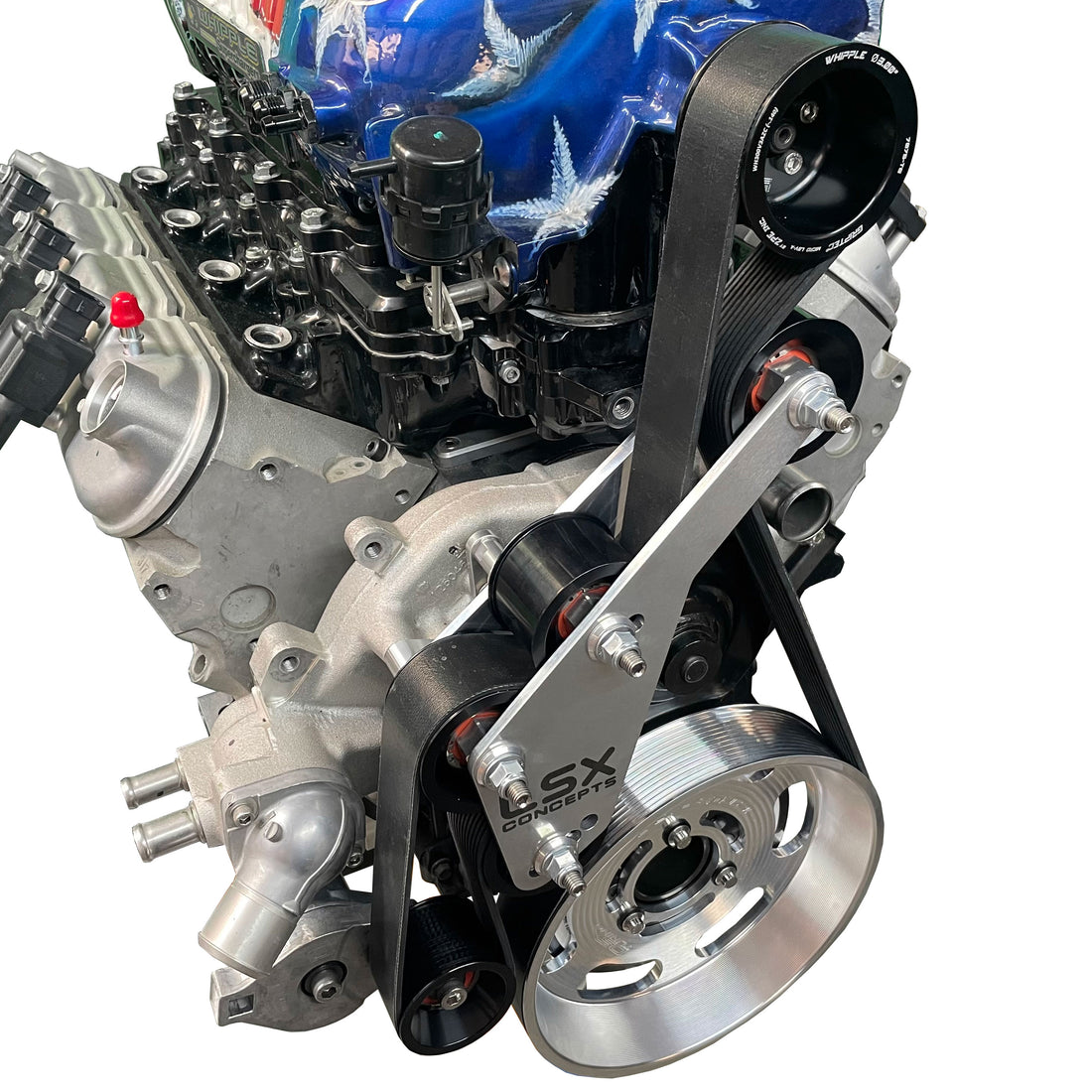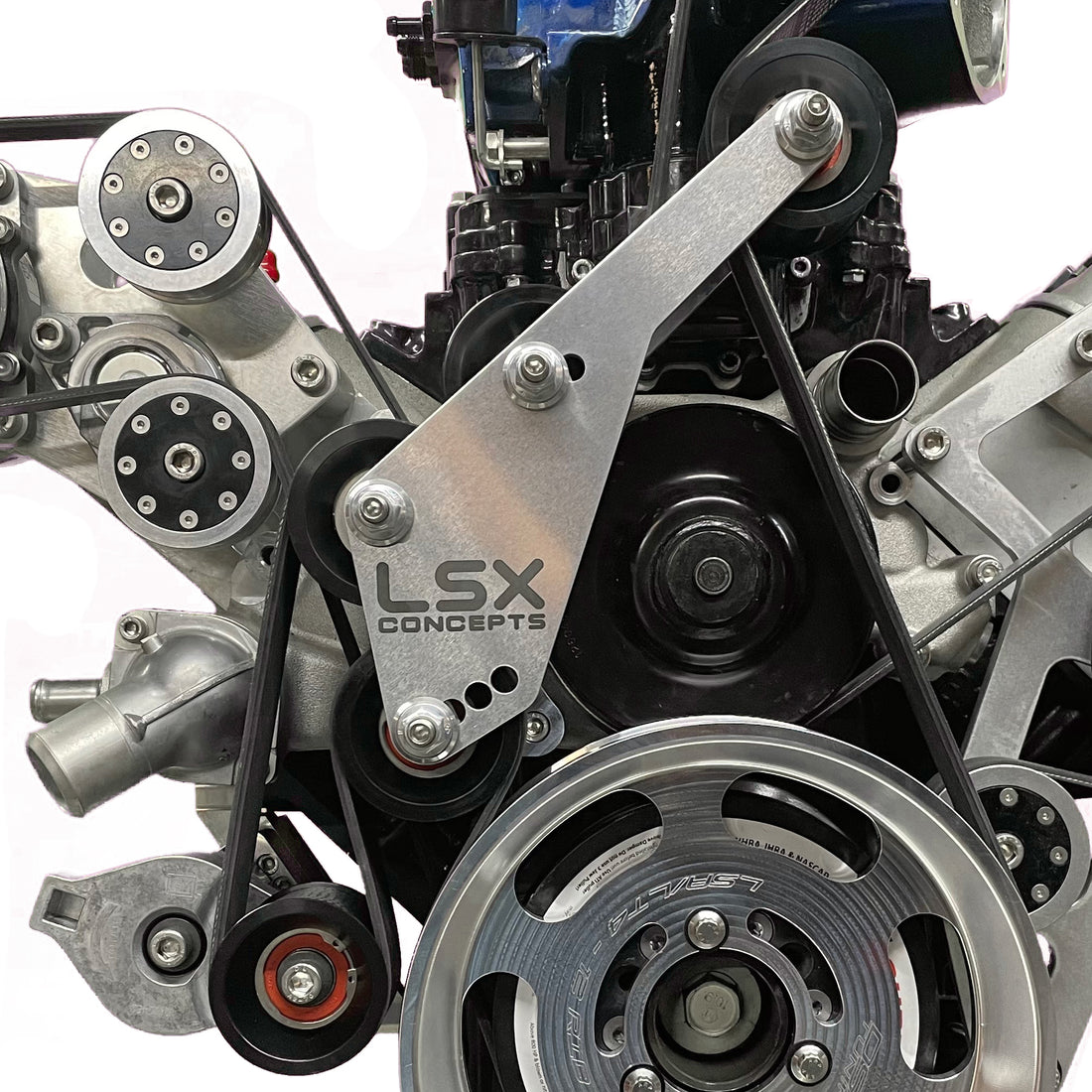Choosing the correct amperage Alternator for you LS Swap...
Selecting the proper alternator is essential to the life of an electrical system on any vehicle. An undersized or incorrectly installed alternator can cause electrical failures, damage and even fire in some extreme cases.
- Make a list of all your electrical components and the amp draw on each component
- Select an alternator with more amps than estimated to ensure long alternator life
NOTE: It is important to know that the alternator cannot output full capacity at idle. Also, electrical demands are generally higher at idle mostly due to engine cooling fans running. When choosing an alternator, make sure that the alternator can output enough amperage at idle to cover the electrical demands of you vehicle.
Amp draw of common auto accessories:
| Accessory |
Estimated Amps |
| CDI Ignition |
10-20 |
| Electric Fuel Pumps - Each |
7-15 |
| Electric Fans - Each |
10-50 |
| Headlights / Taillights |
10-20 |
| Gauges |
2-6 |
| Stereo |
4-10 |
| Inter-cooler Pump |
10-20 |
| ECM / Engine Controller |
3-6 |
| Air Suspension Compressors |
20-50 |
Useful formulas: Amps = Watts / Volts Amps = Volts / 0hms It’s important to note that a race car or street/strip car may have some or all of these components, but may be less likely to use all or many of them in combination. A street driven car, or daily driver however needs to account for all of these items to determine maximum load. You should be able to refer to the manufacturer of any aftermarket components you’ve installed for their amp draw. When you are planning a charging system, it is suggested you take alternator capacity beyond anticipated needs. It is better to have it and not need it than need it and not have it.
Charge Wires
- The connection between the alternator and the battery is very important, soldered terminals are recommended.
- An undersized charge wire on high output units or improperly attached terminals, could result in voltage/amperage loss and possibly alternator and wire damage.
Charge Wire Size Chart
| AMPS |
Up to 4' |
4' - 7' |
7' - 10' |
10' - 13' |
13' - 16' |
16' - 19' |
19' - 22' |
| 250-300 |
4-ga. |
2-ga. |
2-ga. |
1/0-ga. |
1/0-ga. |
1/0-ga. |
2/0-ga. |
| 200-250 |
4-ga. |
4-ga. |
5-ga. |
5-ga. |
1/0-ga. |
1/0-ga. |
1/0-ga. |
| 150-200 |
6-ga. |
4-ga. |
4-ga. |
2-ga. |
2-ga. |
2-ga. |
2-ga. |
| 125-150 |
8-ga. |
6-ga. |
4-ga. |
4-ga. |
2-ga. |
2-ga. |
2-ga. |
| 105-125 |
8-ga. |
8-ga. |
6-ga. |
4-ga. |
4-ga. |
4-ga. |
4-ga. |
| 85-105 |
8-ga. |
8-ga. |
6-ga. |
4-ga. |
4-ga. |
4-ga. |
4-ga. |
| 65-85 |
10-ga. |
8-ga. |
8-ga. |
6-ga. |
4-ga. |
4-ga. |
4-ga. |
| 50-65 |
10-ga. |
10-ga. |
8-ga. |
8-ga. |
6-ga. |
6-ga. |
4-ga. |

